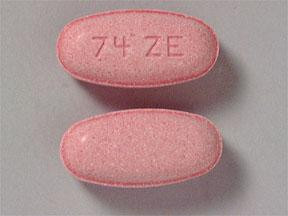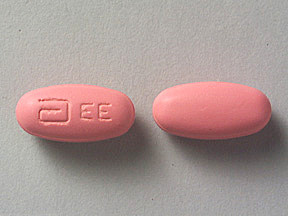ERYTHROMYCIN ETHYLSUCCINATE - ORAL
PHONETIC PRONUNCIATION: (e-RITH-roe-MYE-sin ETH-il-SUX-i-nate)
COMMON BRAND NAME(S): EES
GENERIC NAME(S): erythromycin ethylsuccinate
Uses
USES: Erythromycin is used to treat a wide variety of bacterial infections. It may also be used to prevent certain bacterial infections. Erythromycin is known as a macrolide antibiotic. It works by stopping the growth of bacteria. This antibiotic treats or prevents only bacterial infections. It will not work for viral infections (such as common cold, flu). Using any antibiotic when it is not needed can cause it to not work for future infections.
How to use ERYTHROMYCIN ETHYLSUCCINATE - ORAL
HOW TO USE: Take this medication by mouth with or without food as directed by your doctor. If nausea occurs, taking this medication with food or milk may reduce this side effect. This medication has a bitter taste if crushed. Swallow the medication whole. Do not chew or crush. The dosage and length of treatment are based on your medical condition and response to treatment. In children, the dosage is also based on age and weight. For the best effect, take this antibiotic at evenly spaced times. To help you remember, take this medication at the same time(s) every day. If you are using this medication to treat an infection, continue to take this medication until the full prescribed amount is finished, even if symptoms disappear after a few days. Stopping the medication too early may result in a return of the infection. Tell your doctor if your condition persists or worsens. If you are taking this medication to prevent certain bacterial infections, take it exactly as directed by your doctor. Do not stop taking the medication without your doctor's approval.
Side Effects
Precautions
Interactions
Overdose
Images
Reviews
Faq for ERYTHROMYCIN ETHYLSUCCINATE - ORAL
Erythromycin Ethylsuccinate is an antibiotic medication used to treat various bacterial infections such as respiratory tract infections, skin infections, and ear infections.
Erythromycin Ethylsuccinate works by stopping the growth of bacteria, inhibiting protein synthesis in bacterial cells, thus preventing the bacteria from spreading and causing infections.
Common side effects of Erythromycin Ethylsuccinate include upset stomach, vomiting, diarrhea, stomach cramps, and skin rash. If any severe side effects occur, such as yellowing of the eyes or skin, dark urine, or persistent diarrhea, seek immediate medical attention.
Erythromycin Ethylsuccinate should be taken exactly as prescribed by your doctor. It is usually recommended to take it with or without food every 6-12 hours, depending on the severity of the infection.
It is important to consult your doctor before taking Erythromycin Ethylsuccinate if you are pregnant or planning to become pregnant as it may harm the unborn baby. The medication passes into breast milk, so it is advisable to discuss the potential risks with your healthcare provider before breastfeeding while taking this medication.
It is generally recommended to avoid consuming alcohol while taking Erythromycin Ethylsuccinate as it may increase the risk of certain side effects such as stomach upset.
If you miss a dose, take it as soon as you remember. However, if it is close to the next scheduled dose, skip the missed dose and resume your regular dosing schedule. Do not double the dose to make up for the missed one.
It is important to inform your doctor or pharmacist about all the medications you are currently taking, including prescription, over-the-counter drugs, and herbal supplements. Some medications may interact with Erythromycin Ethylsuccinate and affect its effectiveness or cause unwanted side effects.
The response to Erythromycin Ethylsuccinate varies depending on the type and severity of the infection. In general, improvement in symptoms can be observed within a few days of starting the medication. However, it is important to complete the full course of treatment as prescribed by your doctor to ensure the infection is completely eradicated.
Disclaimer
IMPORTANT: HOW TO USE THIS INFORMATION: This is a summary and does NOT have all possible information about this product. This information does not assure that this product is safe, effective, or appropriate for you. This information is not individual medical advice and does not substitute for the advice of your health care professional. Always ask your health care professional for complete information about this product and your specific health needs.



No Reviews Yet